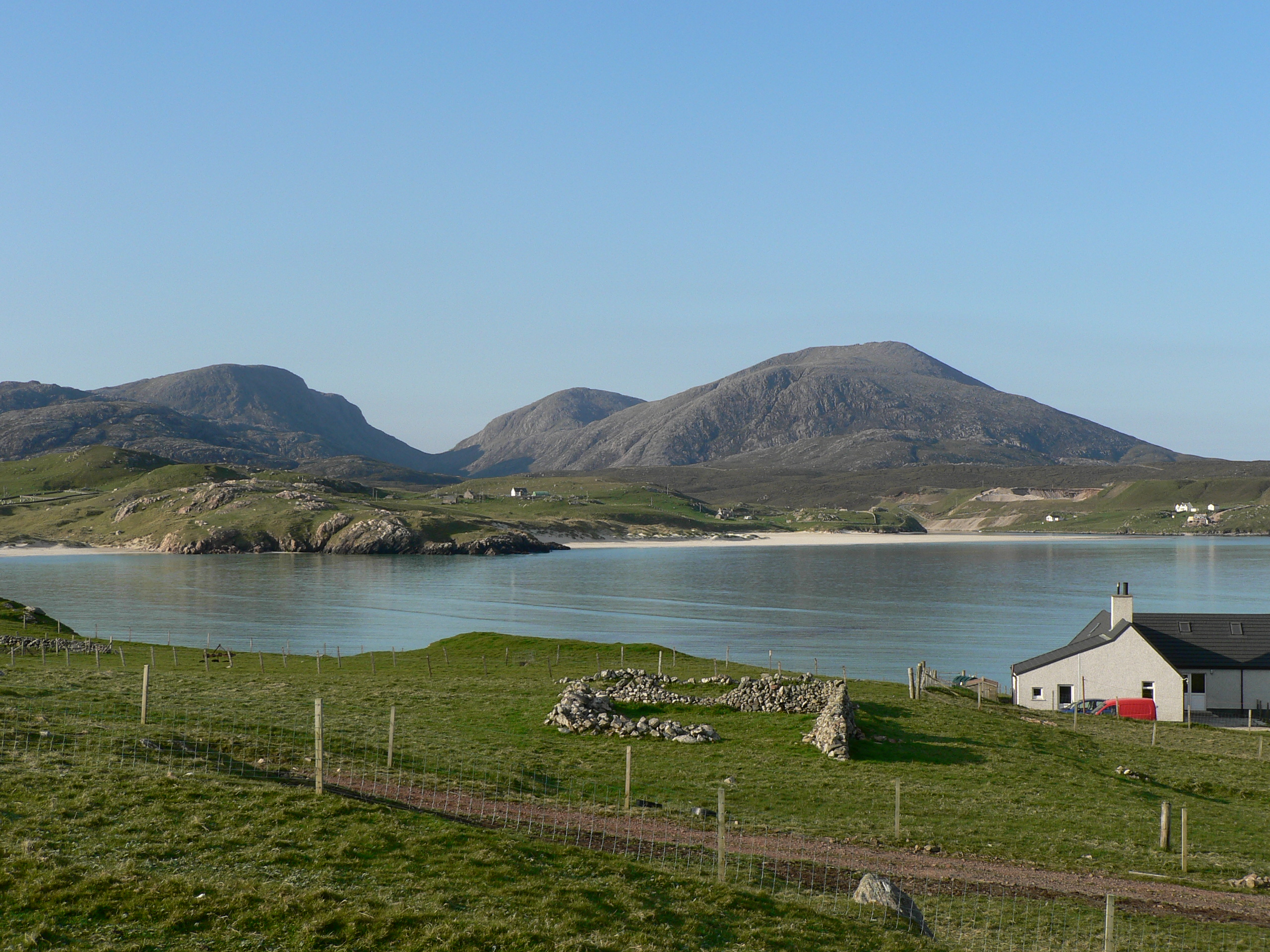Colonials Return, 1918
Excerpts from Stornoway Gazette, Local and District News (Uig)
April 5th, 1918
FRIENDS FROM ACROSS THE SEA: One of the few pleasurable results of this terrible and miserable war is the occasional opportunity offered to friends and relations at home of meeting and welcoming friends and relations from beyond the seas – friends whom, in the ordinary course of events, they might never have then chance of seeing. Long ago many families from Uig and elsewhere were forcibly and unjustly ejected from their happy, if humble homes, and banished to far-off lands in order to make room for sheep and deer. The descendants of those evicted, disregarding the injustice and the wrong so glaringly inflicted upon their ancestors, listened to the call of duty, took up arms in defense of the Mother Country, and offered their services -their lives possibly – in order to help and save her from the tyranny of a treacherous and cruel foe. These come in their hundreds and thousands from all quarters of the globe – from the far West of Canada, to the Far East of Australia and New Zealand, and all the Colonies in between. Ties “lighter than air but stronger than iron bands”, bind these Colonists to the home country, and particularly to the “old haunts” of their forebears, and during their respite from military duties they take the opportunity of visiting these scenes and seeing the descendants of their forefathers’ compatriots. We also are delighted to see these scions of the old stock, and glory in the realisation of a connecting link between our own present and the past generation of old stalwarts and graceful beauties of whom we have heard so much. What also gives very great pleasure is the fact that many of these speak fluently, the old mother tongue, and, what is no less surprising, they speak it with practically the same tone and accent as if they have been born, and brought up within sound and sight of Traigh Mhoir Uige.
Co tha gradh gu faigh a’ Ghaidhlig bas. Cha’n fhaigh cha’n fhaigh! Ged a’ chailleadh sinne ann a Leodhas i – ach na bu d’thig a la chailleas – cha’n fhaigh i bas agus iad seo anns gach cearnaidh do’n t-saoghal ga cumail suas “Cha treig sinne Ghaidhlig fs cha chaill i an deo. Canan rnuirneach as duthcha, cha treig sum r’ar bed.”
Among the “Colonials” who visited recently may be mentioned: Pte. Murdo Smith, Canadians (Ogha do Chaluim Gobha, Enaclete), Pte. Norman Smith (Canadians) Ogha do Aonghas Donn Chrò nan Gabhar, Bhaltos, his father was only fours years old when his family emigrated; and Pte. Angus N Maclennan also Canadians, son of Donald and grandson of the grand old man Mr Angus Maclennan (Aonghas A Bhreabeidair, of Cnip)
We are glad to see the following home this week. Pte. Alick Finlayson (Australians) son of Mr Finlayson Ardroil; Malcolm Maclennan, R.N.V.R, (son of “John”), Cliff; Malcolm Maclennan, R.N.R, (son of “Donald”), Valtos; Donald Mackay, R.N.R, (son of “Hugh”), Carishader, John Macdonald R.N.R., (son of “William”), Geshader; Angus Macleod, R.N.R, (son of “John”), Enaclete; John Macaulay, R.N.R, (son of “Malcolm”), Breanish.
April 12th, 1918
MORE ‘COLONIALS’ VISITING: In last week’s “Gazette” reference was made to our “Colonials” desire to see their forefathers’ native place, and this week we were glad to welcome Pte. N. Maclennan, Canadians, son of Murdo Maclennan and grandson of Murchadh Dhomhnaill a Seanair [Sguthair], Raimer, Valtos, and his friend Pte. Mackay also Canadians. They are leaving today (Monday) after a little over a week’s holiday which we trust they have thoroughly enjoyed. Good luck to them.
A short time ago we had the pleasure of a short visit from Driver Alick Finlayson, Australians, son of Mr Alexander Finlayson, Ardroil Farm. Alick, having spent some time in the Scottish Drapery trade in Cardiff, went to Australia some years before the commencement of this war. Over two years ago he volunteered to throw up a good position in Adelaide and come to his Mother Country’s assistance. After spending a few months in Egypt he arrived in France. As a leading driver, he has done a lot of very valuable work and at Pass Chendale and other hotly contested places his contingent, the Australians – “brave in battle, daring in danger, fearless against the foe” – have shown what “stuff” they were made of and what they can do in difficult situations. A few months ago Alick contracted trench fever and was invalided home. He is now convalescent. After his visit home he went to Salisbury preparatory to going to France again.

